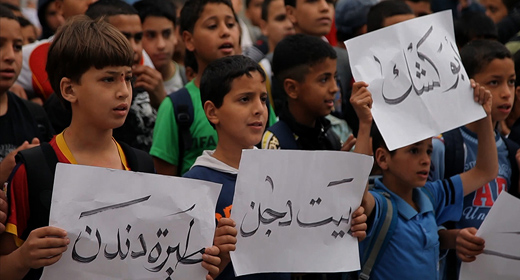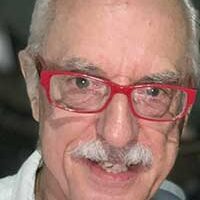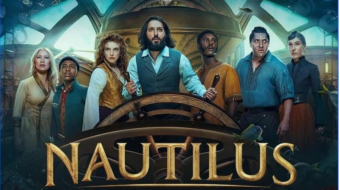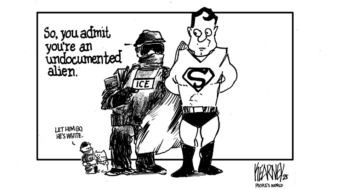
Karl Marx once said, “The education of all children, from the moment they can get along without a mother’s care, shall be in state institutions.” Of course we can now add, private corporate institutions. But either way, schooling is critical and the state plays an important role in shaping the minds of youth.
Israeli-born director Tamara Erde has done what seems the impossible. She investigated both the Israeli and Palestinian public school systems, with access to teachers, students and administrators on both sides of the Wall. It was her stint in the military that interested her in Palestinian life. After moving to Paris, her credentials as a visual artist, researcher and citizen of a troubled land, helped her make a compelling film about how history is taught in this land of contention. This is My Land was not funded by either side and bears the stamp of objective, basic academic research with extremely human results.
Director Tamara Erde met to discuss her new film.
First off, she was denied access to the Israeli public schools. “I could have gone to the public schools, but I couldn’t choose the teachers. I submitted a list of choices, but they censored certain ones from the list – the ones with a Left opinion.” She reasoned, “I didn’t want to create an image that all the teachers were of one Right opinion.” This denial did not affect her plans though. “All schools follow the public curriculum, even the private ones. Only the source of payment is different. And you cannot even interview a teacher in their own home (as a teacher) if you don’t have permission of the Minister of Education.”
Erde left for France five years ago after studying in Israeli schools and serving an eye-opening term in the military. She describes her travels in Israel and the West Bank: “Even with a French passport, as an Israeli I could not enter Gaza. But formally their curriculum is the same as in the West Bank. In Gaza, some teach also in the mosques.”
Erde compares the educational systems: “Palestinians have one curriculum, but in Israel there is (1) the National curriculum, (2) the National-Religious, and (3) the Arab Israeli, taught by Palestinians within Israel, who are 20 percent of the population. The Israeli Ministry controls all of them, so they cannot study Palestinian content. Orthodox schools are not under the Ministry.” Erde did not cover any schools outside the Ministry. “Although after Oslo, Palestinians had their own curriculum, since the money comes from Europe and the U.S., the supervision comes entirely from the Israeli Ministry.”
There is one classroom scene led by an Israeli and a Palestinian who chooses to screen a provocative YouTube video for the class about colonialism. Erde eventually titled her film after this creative political short by American artist Nina Paley. This classroom scene and several other interviews in the movie make it apparent the director has no fear of the power structure. Well aware of the growing BDS campaign, she assures that no funding came from Israel. “My decision was not to ask for money from either side in the film, in order to remain objective and avoid any controversy…. As a political stand, I chose to leave Israel and do my films from outside. After my army service I started having these questions and doubts and getting to know Palestinians and making friends.” She frankly admits, “It touches some delicate subjects and it isn’t always easy for the Jewish community to hear, but it touches on the core values of our history, and it is the right time to start a new discussion, especially with the new generation.”
Erde was asked if she felt any mistruths were being taught in schools. “The problem is not necessarily ‘falsities’ in the teaching, but rather what is not taught. There were no noticeable facts that were twisted but, for example, it is illegal to mention the word ‘Nakba’ recognizing the Palestinian tragedy of the loss of their land and people. You will get a fine. Palestinian history is ignored, and one teacher interviewed noted that there is only one picture of an Arab in an entire history book of the region.”
She laments the social realities: “Israeli kids today hardly ever cross a checkpoint or enter Palestinian communities. Even within Israel itself, the objective is to divide into sectors, keeping people more apart in a country becoming more religiously Orthodox. There are now more than a million settlers. In Jerusalem now, it is almost all religious, with no secular elements.”
The director was asked how she can come across objectively when she must have strong personal feelings. “It’s impossible to be completely objective, but you have to try and control anger and overcome emotion. Give the audience the ability to judge for itself. People can see it from their own perspective and judge it accordingly. What was important for me was to try and find teachers who will offer the many options available in the teaching profession.”
This Is My Land shows extreme differences between people on opposite sides of the Wall. Teachers of an oppressed people in an occupied land obviously bear a burden much heavier than that of the privileged victors. The film contains some amazing scenes of dedicated teachers who, although obliged to follow the mandated restrictions of the Ministry of Education, still rise above them to educate and inspire students to search for the truth and to find solutions in a troubled land.
Tamara Erde suggests that one of the messages of the film could be, “Maybe the best education you can give is to ask questions and open students’ curiosity, raise doubts rather than tell them truths as we believe them. But of course, people can take what they choose to take.”
Efforts are in progress toward getting a U.S. distributor while the film plays at various festivals. (There is also a short version of the film available.) It will have its premiere in Haifa in late October with a follow-up screening in Ramallah. Teachers and participants will be invited, but crossing the border for any of them will be problematic. Fortunately for us, Erde overcame that problem to create a most captivating work of art.
Photo: Official website










